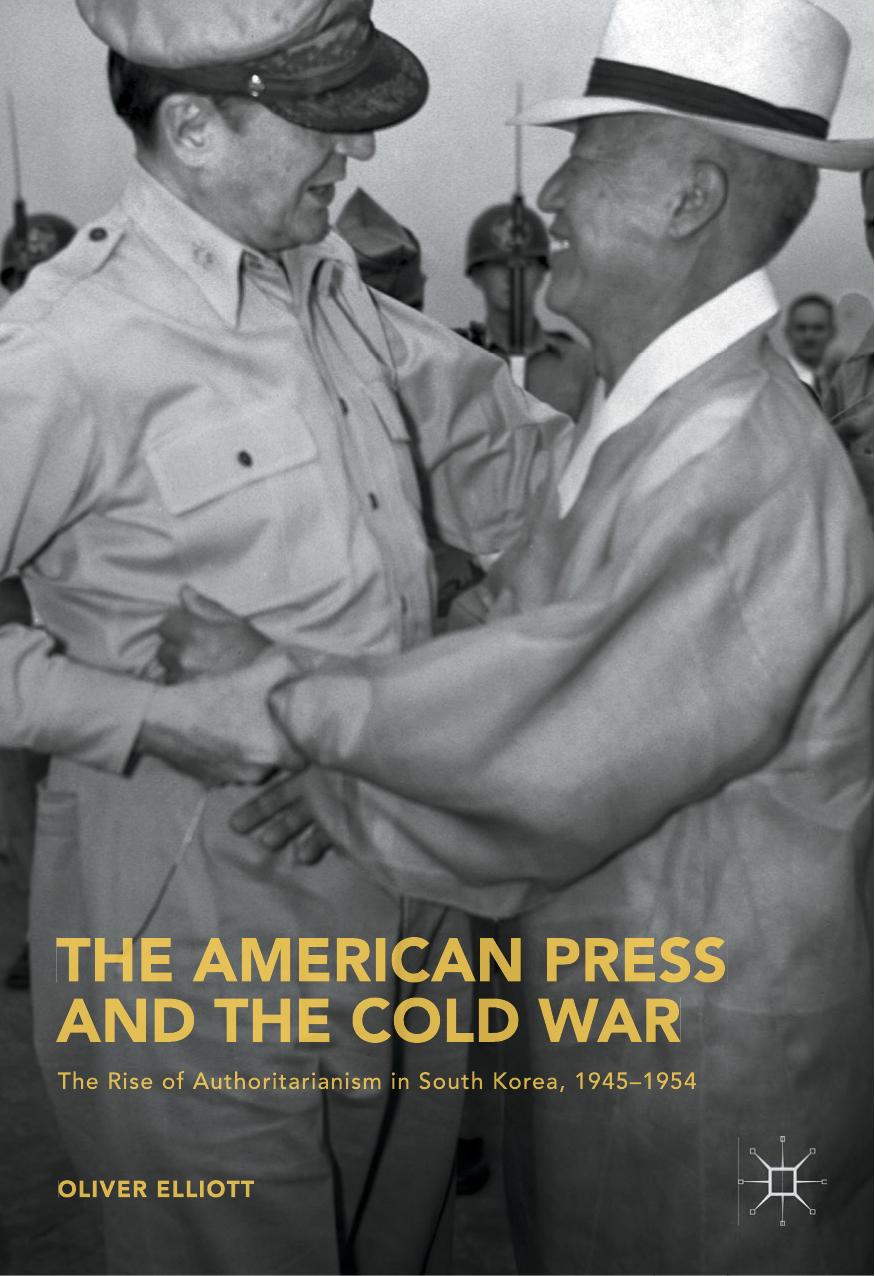The American Press and the Cold War by Oliver Elliott

Author:Oliver Elliott
Language: eng
Format: epub, pdf
Publisher: Springer International Publishing, Cham
War Correspondents and South Korean Atrocities
Higgins was one of around 200 American war correspondents who reported from Korea during the summer of 1950. Between the start of the war in June and the imposition of mandatory censorship in December, the dispatches of American correspondents were not subject to military censorship. Although US military authorities and the press came to blows several times over the extent of permissible criticism of US military performance, the press nonetheless possessed an unusual degree of freedom to write about the war.24 In the view of Bruce Cumings, coverage from this period of the war was “fascinating and instructive, revealing its essential nature, its civil nature” (italics in original).25
Other scholars have been much less impressed by the quality of American coverage. Much criticism has focused on the perceived failure of journalists to report on how the war impacted on the civilian population. This issue became particularly sensitive after an AP investigation in 1999 discovered evidence of an alleged massacre of hundreds of Korean civilians by American soldiers near the village of No Gun Ri in July 1950.26 Following interviews with eyewitnesses and examination of US government archives, AP published a sensational report suggesting that the soldiers at No Gun Ri had been following orders from senior military commanders to shoot civilians suspected of being communist insurgents.27 While the details of what happened at No Gun RI are still heavily contested, the lack of contemporary coverage of these atrocities was brought into the spotlight.28
In the wake of the No Gun Ri revelations, increased attention has also been paid to allegations of mass executions carried out by South Korean forces. Over 100,000 people may have been executed in the early stages of the war—many of them members of the Bodo League, an organization created by the Rhee government in 1949 with the official purpose of rehabilitating leftists but, in practice, used as a mechanism for monitoring critics of the regime.29 While no correspondents captured the full scale of this systematic repression, Philip Knightley argued that reporters from the United Kingdom and Australia did much more to bring these atrocities to the attention of the public.30 Most Americans correspondents, he suggested, had merely got “on side” with the military’s view of how the war should be reported.31
The distinction Knightley drew between different nationalities of correspondents was not entirely fair. On many occasions during the first six months of the war, American reporters wrote about the extrajudicial killing and abuse of prisoners by South Korean forces.32 The first significant atrocity report appeared roughly two weeks into the war when UP correspondent Rutherford Poats was travelling with an Australian United Nations military observer and witnessed South Korean soldiers breaking the backs of suspected communist guerrillas with their rifle butts:SOMEWHERE IN KOREA, 10 July, 1950—The South Koreans deal out quick punishment to suspected Communist guerrillas behind their lines. They break their backs, then execute them. United Nations Military Observer R. J. Rankin of Australia and I discovered this today when we came upon two open trucks parked in front of a grove overlooking a river.
Download
The American Press and the Cold War by Oliver Elliott.pdf
This site does not store any files on its server. We only index and link to content provided by other sites. Please contact the content providers to delete copyright contents if any and email us, we'll remove relevant links or contents immediately.
| Arms Control | Diplomacy |
| Security | Trades & Tariffs |
| Treaties | African |
| Asian | Australian & Oceanian |
| Canadian | Caribbean & Latin American |
| European | Middle Eastern |
| Russian & Former Soviet Union |
The Secret History by Donna Tartt(19088)
The Social Justice Warrior Handbook by Lisa De Pasquale(12190)
Thirteen Reasons Why by Jay Asher(8910)
This Is How You Lose Her by Junot Diaz(6887)
Weapons of Math Destruction by Cathy O'Neil(6280)
Zero to One by Peter Thiel(5802)
Beartown by Fredrik Backman(5754)
The Myth of the Strong Leader by Archie Brown(5507)
The Fire Next Time by James Baldwin(5446)
How Democracies Die by Steven Levitsky & Daniel Ziblatt(5219)
Promise Me, Dad by Joe Biden(5153)
Stone's Rules by Roger Stone(5088)
A Higher Loyalty: Truth, Lies, and Leadership by James Comey(4964)
100 Deadly Skills by Clint Emerson(4925)
Rise and Kill First by Ronen Bergman(4789)
Secrecy World by Jake Bernstein(4753)
The David Icke Guide to the Global Conspiracy (and how to end it) by David Icke(4720)
The Farm by Tom Rob Smith(4513)
The Doomsday Machine by Daniel Ellsberg(4490)
